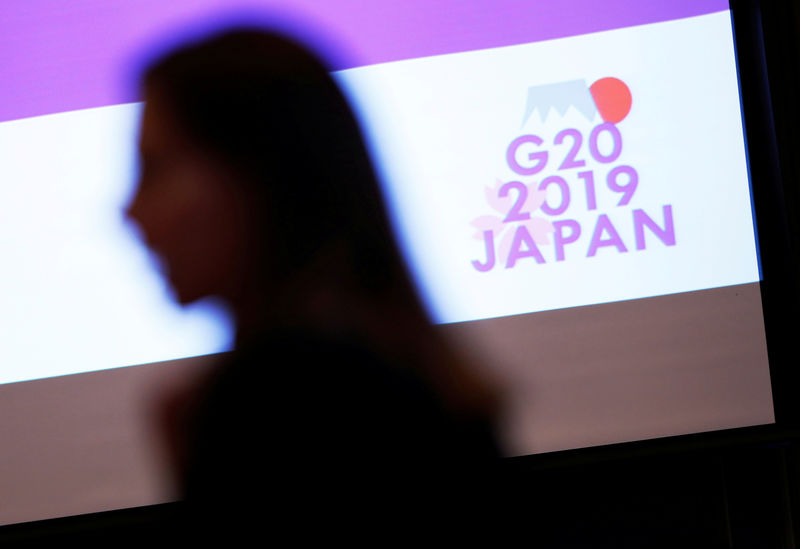By Tetsushi Kajimoto and Takaya Yamaguchi
TOKYO (Reuters) - Downside risks in the global economy are likely to persist over the medium to long term, pressured by the Sino-U.S. trade war and a slowdown in China, Japan's top financial diplomat said.
Masatsugu Asakawa, vice finance minister for international affairs, said he hoped Washington and Beijing would resolve their trade dispute by tackling not just trade issues but China's structural problems.
Asakawa's comments came just days after China set an economic growth target of 6.0 to 6.5 percent in 2019, below the 6.6 percent gross domestic product growth reported last year.
"It's inevitable for Chinese economy to slow, with its potential growth lowering as a trend," Asakawa told Reuters.
"It is unlikely to falter greatly as there's room for authorities' stimulus measures."
Global trade has slowed over the past year as Washington and Beijing have been locked in a tit-for-tat tariff battle for months. U.S. President Donald Trump said on Wednesday that trade talks with China were moving along well and predicted either a "good deal" or no deal.
Asakawa said the trade war and China's slowdown meant the risks to global growth remain over the medium to long term, although the world economy is still in recovery mode.
Asakawa said he wanted the world's two largest economies to address China's structural problems over intellectual property, technology transfer and state-owned enterprises.
Tokyo and Washington are set to enter bilateral trade talks in the coming months, with currency issues likely in focus.
Asked if Trump's past criticism against Japan for keeping the yen low through the Bank of Japan's "money supply" could tie Tokyo's hands in coping with a spike in the currency, Asakawa said he saw no problem as long as monetary policy is not targeting currencies
"G7 and G20 have constantly agreed that excess currency volatility and disorderly movement are undesirable for economy and financial stability," he said.
"Japan can act as appropriate based on the G7/G20 agreement in case disorderly moves like "flash crash" occurs in the market."
Asakawa took up his post in July 2015, overseeing currency issues and international affairs such as G7 and G20 meetings.
He has become the longest serving top financial diplomat, exceeding the previous record set by BOJ Governor Haruhiko Kuroda, who served as vice finance minister for international affairs for 3 1/2 years to Jan 2003.
Under Japan's chair, G20 finance ministers and central bank governors will meet in Fukuoka in western Japan on June 8-9, followed by a leaders' summit in Osaka on June 28-29.
Japan hopes to deepen debate on global imbalances, including widening income gaps and the distribution of wealth, as well as the management of fiscal and monetary policies in the face of aging populations around the world, he said.
He added that Japan would lead the G20 debate on free trade, adding that the global body would lose its influence if trade issues aren't discussed in a comprehensive manner.
Asakawa justified Japan's hefty current account surpluses, running about 20 trillion yen for a third straight year to 2018, which mostly consist of income gains from overseas investment. Japan's current account surplus is in part backed by a rise in savings for the future as the population ages, he said.

"Japanese direct investment overseas has helped create jobs in the United States and Europe."